#bigdata
Explore tagged Tumblr posts
Text
#AIart#art#machinelearning#deeplearning#artificialintelligence#datascience#iiot#data#MLsoGood#code#python#bigdata#MLart#algorithm#chatGPT#openAI#programmer#pytorch#DataScientist#Analytics#AI#VR#iot#TechCult#Digitalart#DigitalArtMarket#generativeai#ArtMarket#DataArt#GAN
484 notes
·
View notes
Text

Simple Linear Regression in Data Science and machine learning
Simple linear regression is one of the most important techniques in data science and machine learning. It is the foundation of many statistical and machine learning models. Even though it is simple, its concepts are widely applicable in predicting outcomes and understanding relationships between variables.
This article will help you learn about:
1. What is simple linear regression and why it matters.
2. The step-by-step intuition behind it.
3. The math of finding slope() and intercept().
4. Simple linear regression coding using Python.
5. A practical real-world implementation.
If you are new to data science or machine learning, don’t worry! We will keep things simple so that you can follow along without any problems.
What is simple linear regression?
Simple linear regression is a method to model the relationship between two variables:
1. Independent variable (X): The input, also called the predictor or feature.
2. Dependent Variable (Y): The output or target value we want to predict.
The main purpose of simple linear regression is to find a straight line (called the regression line) that best fits the data. This line minimizes the error between the actual and predicted values.
The mathematical equation for the line is:
Y = mX + b
: The predicted values.
: The slope of the line (how steep it is).
: The intercept (the value of when).
Why use simple linear regression?
click here to read more https://datacienceatoz.blogspot.com/2025/01/simple-linear-regression-in-data.html
#artificial intelligence#bigdata#books#machine learning#machinelearning#programming#python#science#skills#big data#linear algebra#linear b#slope#interception
6 notes
·
View notes
Text
Konverz AI: Reimagining Workforce Management with HR Tech.
#artificialintelligence#ai#machinelearning#aiart#digitalart#technology#art#midjourney#aiartcommunity#datascience#generativeart#innovation#tech#deeplearning#python#midjourneyart#programming#aiartwork#bigdata#robotics#aiartist#coding#artoftheday#business#iot#digitalartist#artwork#aiartists#midjourneyai#stablediffusion
2 notes
·
View notes
Text


#huzurparmakuclarinda#huzuruaramak#az insan çok huzur#huzursun sen#huzursuzluğun kitabı#huzur#huzurunsesi#huzur verici#book blog#bigdata#mutluluğunresmi#mutluluk#landscape#commissions open#yalnız kalmak#kitap#keşfet#music#dutch
83 notes
·
View notes
Text
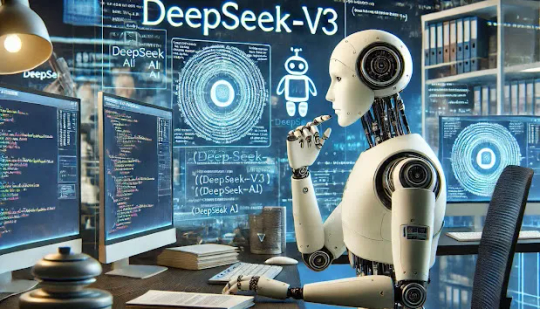
DeepSeek: The Chinese AI Company Challenging OpenAI, read more
#DeepSeek#AI#ArtificialIntelligence#DeepLearning#MachineLearning#TechInnovation#AIResearch#FutureOfAI#NeuralNetworks#BigData#AIAutomation#SmartTechnology#DataScience#AIAlgorithms#TechRevolution#FutureTechnology#AITools#AIExploration
3 notes
·
View notes
Text
How Dr. Imad Syed Transformed PiLog Group into a Digital Transformation Leader?
The digital age demands leaders who don’t just adapt but drive transformation. One such visionary is Dr. Imad Syed, who recently shared his incredible journey and PiLog Group’s path to success in an exclusive interview on Times Now.
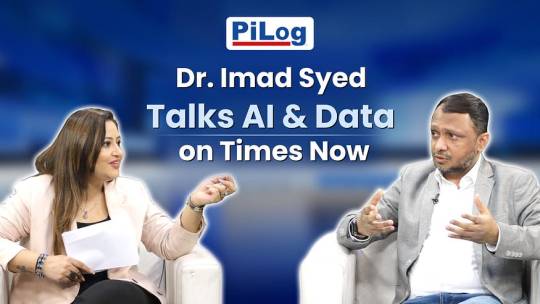
In this inspiring conversation, Dr. Syed reflects on the milestones, challenges, and innovative strategies that have positioned PiLog Group as a global leader in data management and digital transformation.
The Journey of a Visionary:
From humble beginnings to spearheading PiLog’s global expansion, Dr. Syed’s story is a testament to resilience and innovation. His leadership has not only redefined PiLog but has also influenced industries worldwide, especially in domains like data governance, SaaS solutions, and AI-driven analytics.
PiLog’s Success: A Benchmark in Digital Transformation:
Under Dr. Syed’s guidance, PiLog has become synonymous with pioneering Lean Data Governance SaaS solutions. Their focus on data integrity and process automation has helped businesses achieve operational excellence. PiLog’s services are trusted by industries such as oil and gas, manufacturing, energy, utilities & nuclear and many more.
Key Insights from the Interview:
In the interview, Dr. Syed touches upon:
The importance of data governance in digital transformation.
How PiLog’s solutions empower organizations to streamline operations.
His philosophy of continuous learning and innovation.
A Must-Watch for Industry Leaders:
If you’re a business leader or tech enthusiast, this interview is packed with actionable insights that can transform your understanding of digital innovation.
👉 Watch the full interview here:
youtube
The Global Impact of PiLog Group:
PiLog’s success story resonates globally, serving clients across Africa, the USA, EU, Gulf countries, and beyond. Their ability to adapt and innovate makes them a case study in leveraging digital transformation for competitive advantage.
Join the Conversation:
What’s your take on the future of data governance and digital transformation? Share your thoughts and experiences in the comments below.
#datamanagement#data governance#data analysis#data analytics#data scientist#big data#dataengineering#dataprivacy#data centers#datadriven#data#businesssolutions#techinnovation#businessgrowth#businessautomation#digital transformation#piloggroup#drimadsyed#timesnowinterview#datascience#artificialintelligence#bigdata#datadrivendecisions#Youtube
2 notes
·
View notes
Text

what u think, to much colour, or less?
https://sdesignt.threadless.com/
#tshirt#animals#design#rainbow#computer#Innovation#AI#Blockchain#Crypto#Tech#Digital#Data#BigData#Automation#Cloud#Cybersecurity#Startup#Entrepreneur#Leadership#Marketing#Business#Ecommerce#Content#Performance#Development#Research#Analytics#Growth#Productivity#Trend
4 notes
·
View notes
Text
"Unlocking Business Intelligence with Data Warehouse Solutions"
Data Warehouse Solution: Boosting Business Intelligence
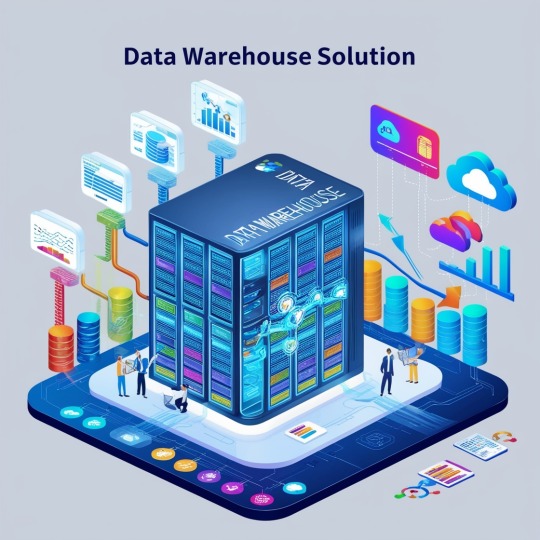
A data warehouse (DW) is an organized space that enables companies to organize and assess large volumes of information through multiple locations in a consistent way. This is intended to assist with tracking, company analytics, and choices. The data warehouse's primary purpose was to render it possible to efficiently analyze past and present information, offering important conclusions for management as a business strategy.
A data warehouse normally employs procedures (Take, convert, load) for combining information coming from several sources, including business tables, operations, and outside data flows.This allows for an advanced level of scrutiny by ensuring data reliability and precision. The information's structure enables complicated searches, which are often achieved using the aid of SQL-based tools, BI (Business Intelligence) software, or information display systems.
Regarding activities requiring extensive research, data storage centers were ideal since they could provide executives with rapid and precise conclusions. Common application cases include accounting, provider direction, customer statistics, and projections of sales. Systems provide connectivity, speed, and easy control of networks, but as cloud computing gained popularity, data warehouses like Amazon's Redshift, Google's Large SEARCH, and Snowflake have remained famous.
In conclusion, managing information systems is essential for companies that want to make the most out of their information. Gathering information collected in one center allows firms to better understand how they operate and introduce decisions that promote inventiveness and originality.
2 notes
·
View notes
Link
Suppose there was a library where the whole instruction manual for every living organism on Earth could be found. It’s not science fiction, but projects such as “Indexing All Life’s Known Biological Sequences” are designed to try and accomplish this. In this case, the instructions refer to DNA and protein sequences that constitute the blueprints of life. Decoding these sequences is necessary to understand how organisms function, evolve, and relate to each other. However, searching and analyzing these sequences has become difficult due to increased biological data being generated. This is where MetaGraph comes in – a powerful new tool that functions like Google for DNA, which was developed by researchers to tackle the problem of managing massive biological sequence datasets.
Our genetic information is written using nucleotides, which are essentially building blocks of RNA and DNA. Each living thing has its own set of these nucleotides arranged in an elaborate labyrinthine codebook. MetaGraph uses “De Bruijn graphs,” a smart strategy for representing these sequences efficiently. Think about it like a detailed map where each part represents a short sequence (called k-mer) while connections between sections show overlap between those k-mers.
Continue Reading
4 notes
·
View notes
Photo

The complexity of modern cities can feel overwhelming, with issues like traffic congestion, pollution, and inadequate infrastructure becoming daily challenges. But what if technology could provide the solutions we need? By harnessing AI and robotics, we can create urban spaces that are more sustainable, efficient, and livable for everyone. The future of urban planning is bright, and it’s within our reach.
#urbanplanning#smartcities#innovation#aideddesign#sustainability#cityplanning#futurecities#urbantransformation#aiurbanism#robotics#urbaninnovation#smartdesign#futurevision#bigdata#urbanliving
2 notes
·
View notes
Text
What happens when human imagination meets machine intelligence? An algorithm can reproduce, at scale, every brushstroke, sculpted curve, and poetic phrase.
Who Can You Trust When Creativity Is Algorithmic? Algorithmic Authenticity. How AI artists can copyright their work
#machinelearning#artificialintelligence#art#digitalart#mlart#ai#algorithm#bigdata#datascience#vr#ai art#authenticity#copyright
9 notes
·
View notes
Text
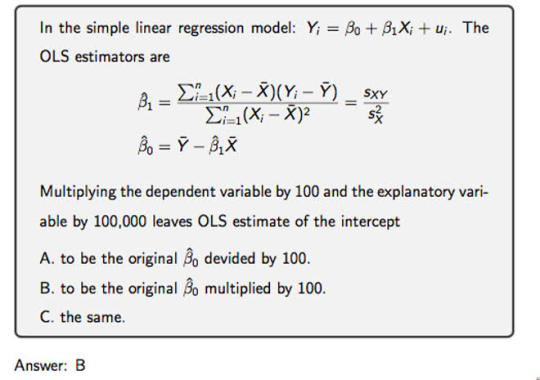
Beginner’s Guide to Ridge Regression in Machine Learning
Introduction
Regression analysis is a fundamental technique in machine learning, used to predict a dependent variable based on one or more independent variables. However, traditional regression methods, such as simple linear regression, can struggle to deal with multicollinearity (high correlation between predictors). This is where ridge regression comes in handy.
Ridge regression is an advanced form of linear regression that reduces overfitting by adding a penalty term to the model. In this article, we will cover what ridge regression is, why it is important, how it works, its assumptions, and how to implement it using Python.
What is Ridge Regression?
Ridge regression is a type of regularization technique that modifies the linear
click here to read more
https://datacienceatoz.blogspot.com/2025/02/a-beginners-guide-to-ridge-regression.html
#artificial intelligence#bigdata#books#machine learning#machinelearning#programming#python#science#skills#big data
4 notes
·
View notes
Text
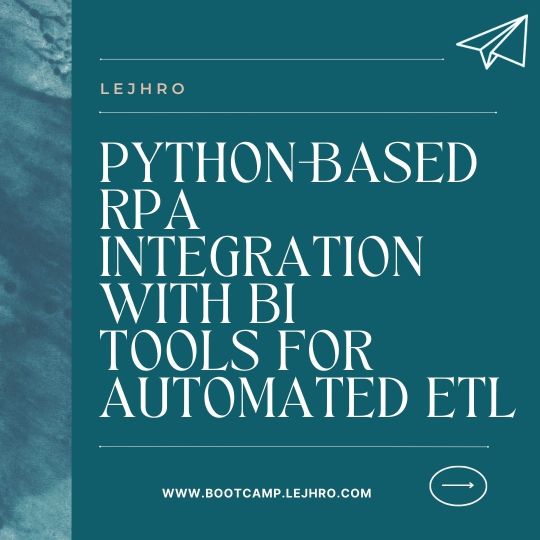
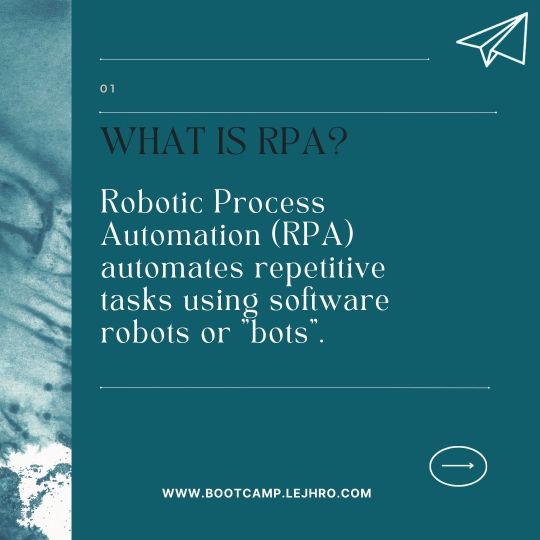
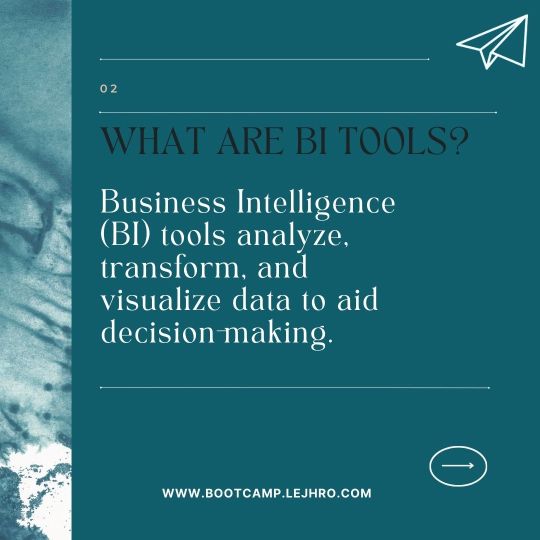
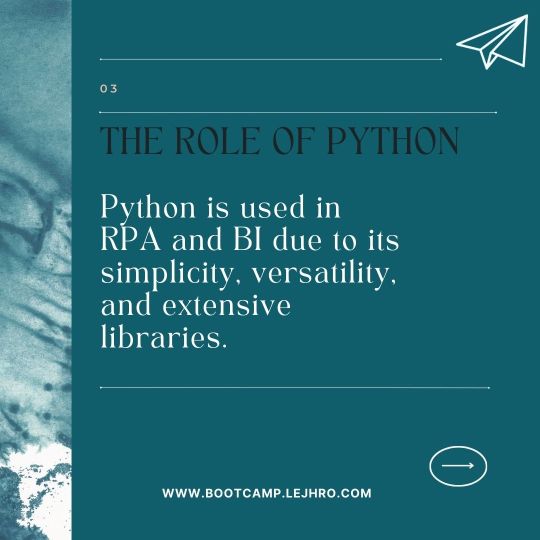
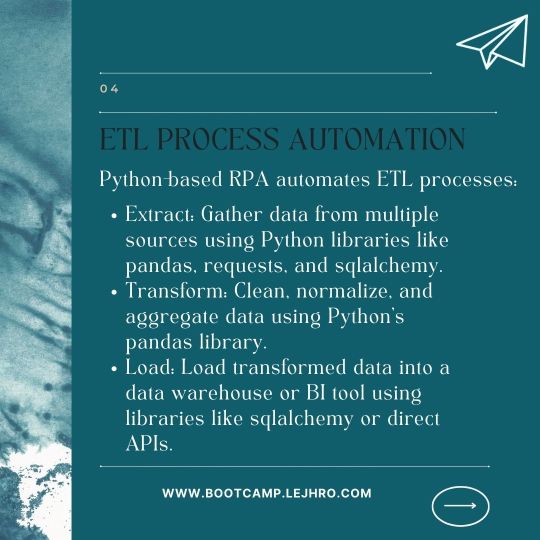
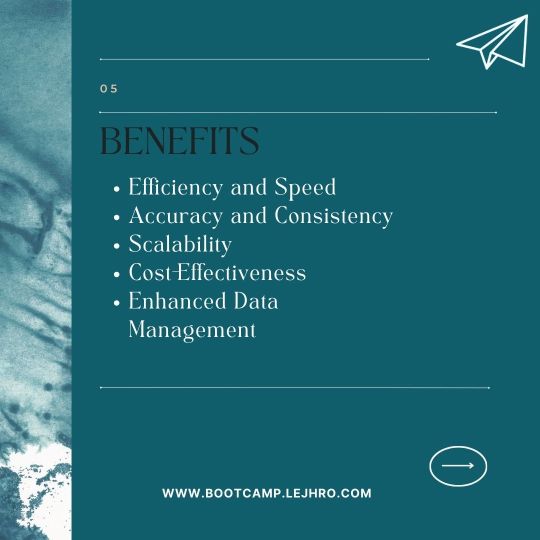
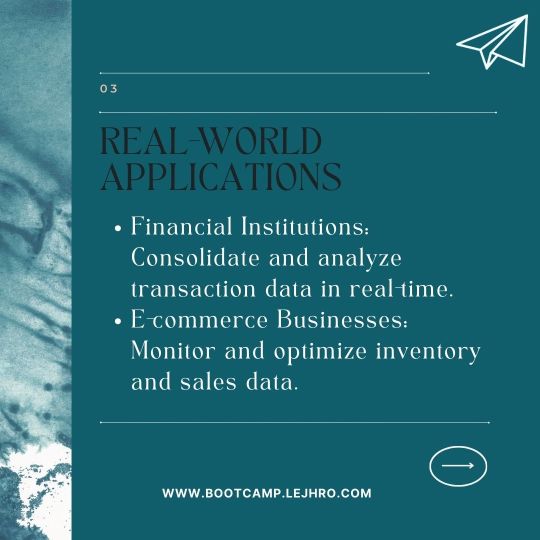

🚀 Revolutionize Your Data Management! 🚀 Discover how Python-based RPA integration with BI tools can automate ETL processes, increasing efficiency, accuracy, and scalability. Learn how businesses like yours are leveraging this technology to drive data-driven decision-making. 💡Learn More: https://lnkd.in/giV6BPNQ The latest scoop, straight to your mailbox : http://surl.li/omuvuv #DataManagement #ETL #RPA #BI #Automation #DigitalTransformation #DataAnalytics #BusinessIntelligence #TechnologyInnovation #DataScience #Innovation #BusinessSolutions #DataProcessing #SoftwareDevelopment #DataVisualization #Analytics
3 notes
·
View notes
Text

Exploring the limitless potential of Artificial Intelligence! 🤖 From smarter solutions to transforming industries, AI is paving the way for the future. Let’s embrace innovation and unlock new possibilities together!
#artificialintelligence#ai#machinelearning#aiart#digitalart#technology#art#midjourney#aiartcommunity#datascience#generativeart#innovation#tech#deeplearning#python#midjourneyart#programming#aiartwork#bigdata#robotics#aiartist#coding#artoftheday#business#iot#digitalartist#artwork#aiartists#midjourneyai#stablediffusion
2 notes
·
View notes
Text
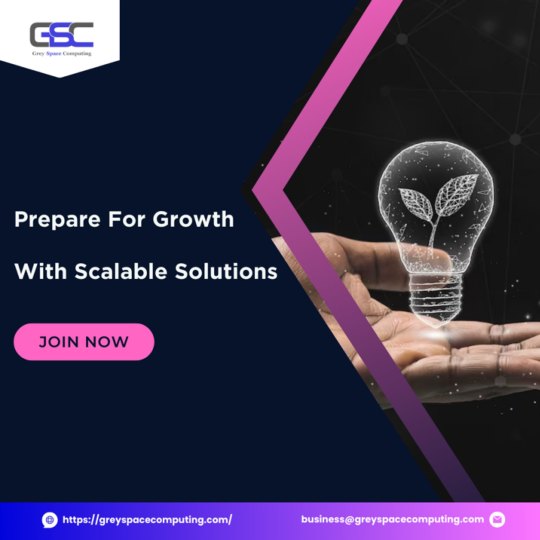
Growth is exciting, but only if your app can handle it! Cloud technology ensures your app scales effortlessly to meet increasing demand. 📈 Get ready for success! 🔗Learn more: https://greyspacecomputing.com/custom-mobile-application-development-services/ 📧 Visit: https://greyspacecomputing.com/portfolio
#GreySpaceComputing#CloudTech#AppScalability#cloudcomputing#cloud#technology#cybersecurity#aws#bigdata#devops#it#datacenter#azure#cloudstorage#linux#programming#software#tech#iot#cloudservices#coding#cloudsecurity#machinelearning#informationtechnology#datascience#business#python#security#microsoft#dataprotection
2 notes
·
View notes